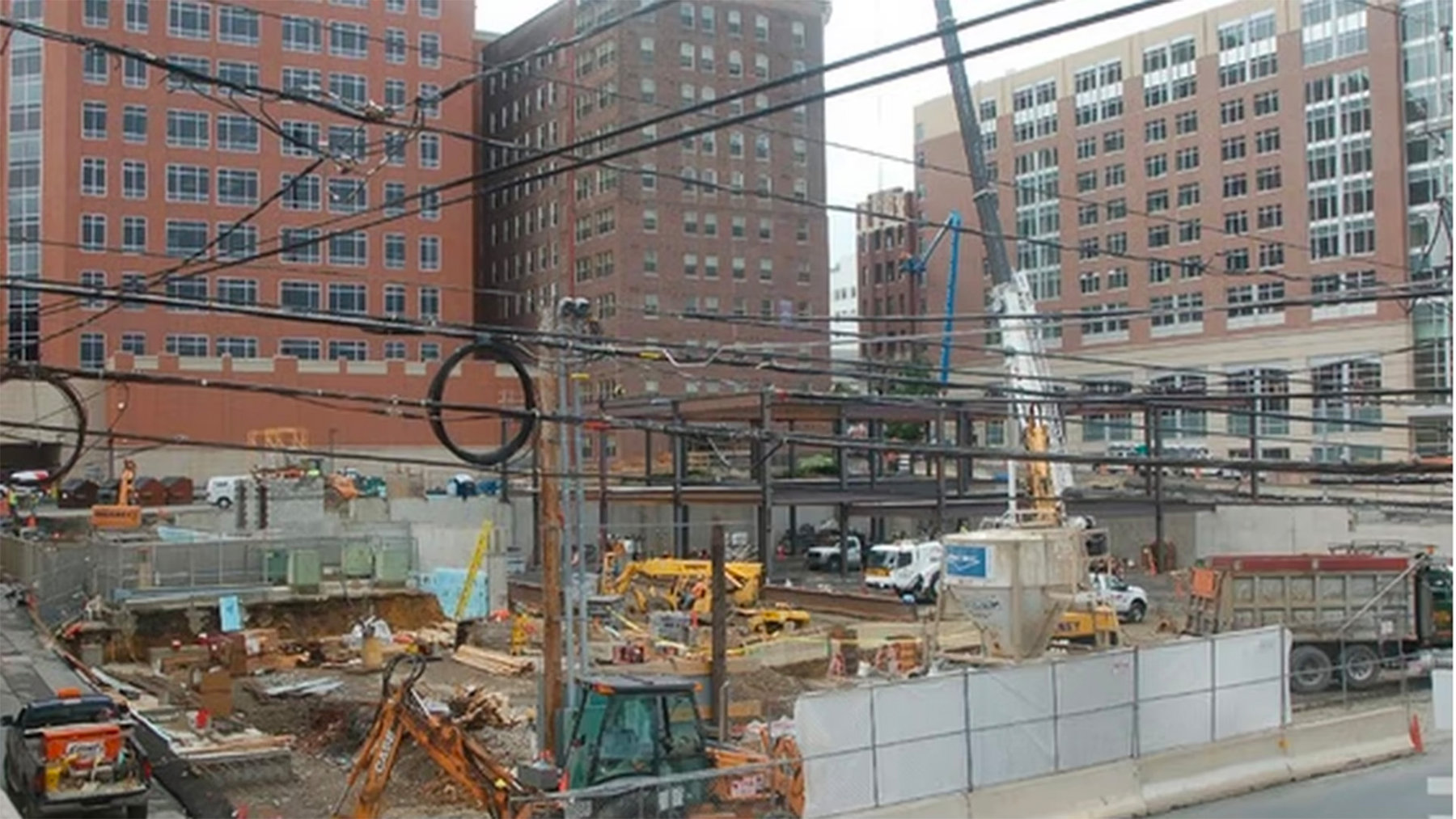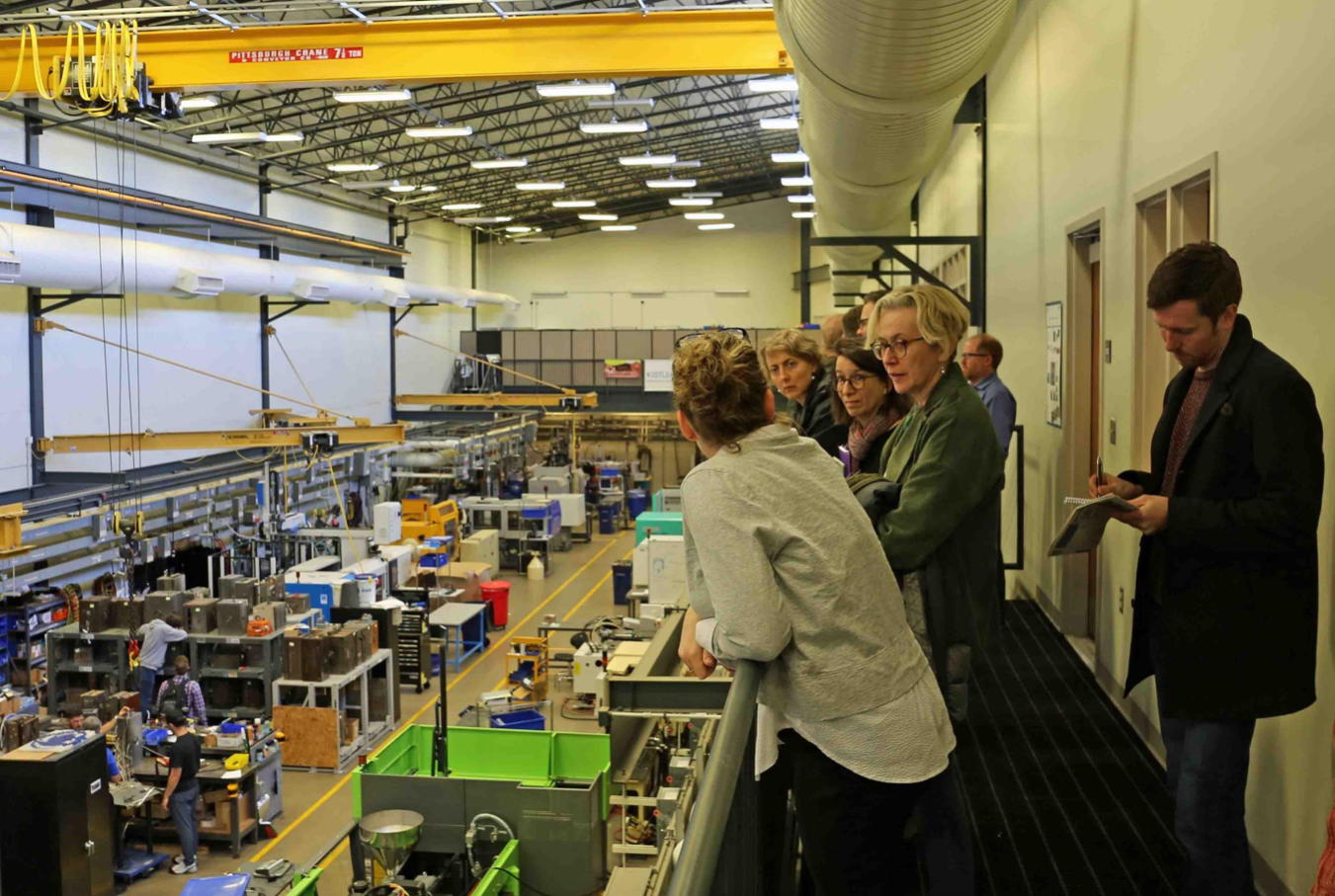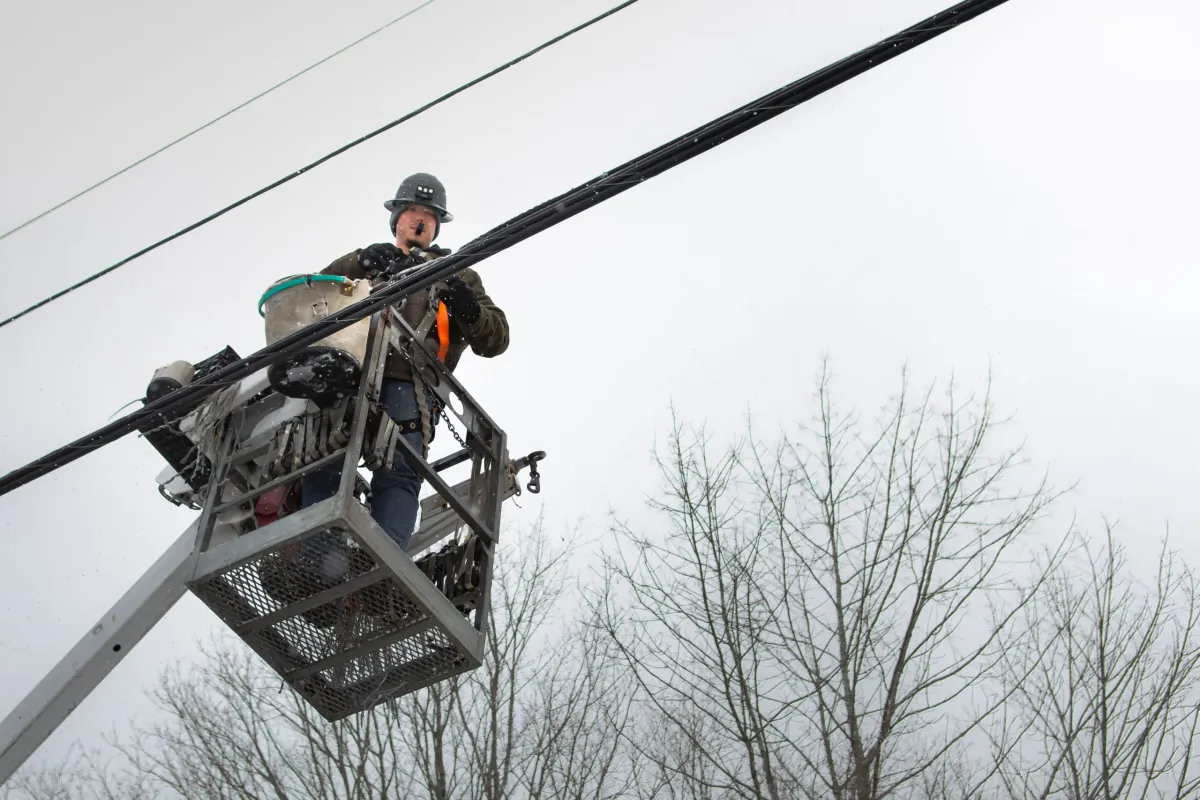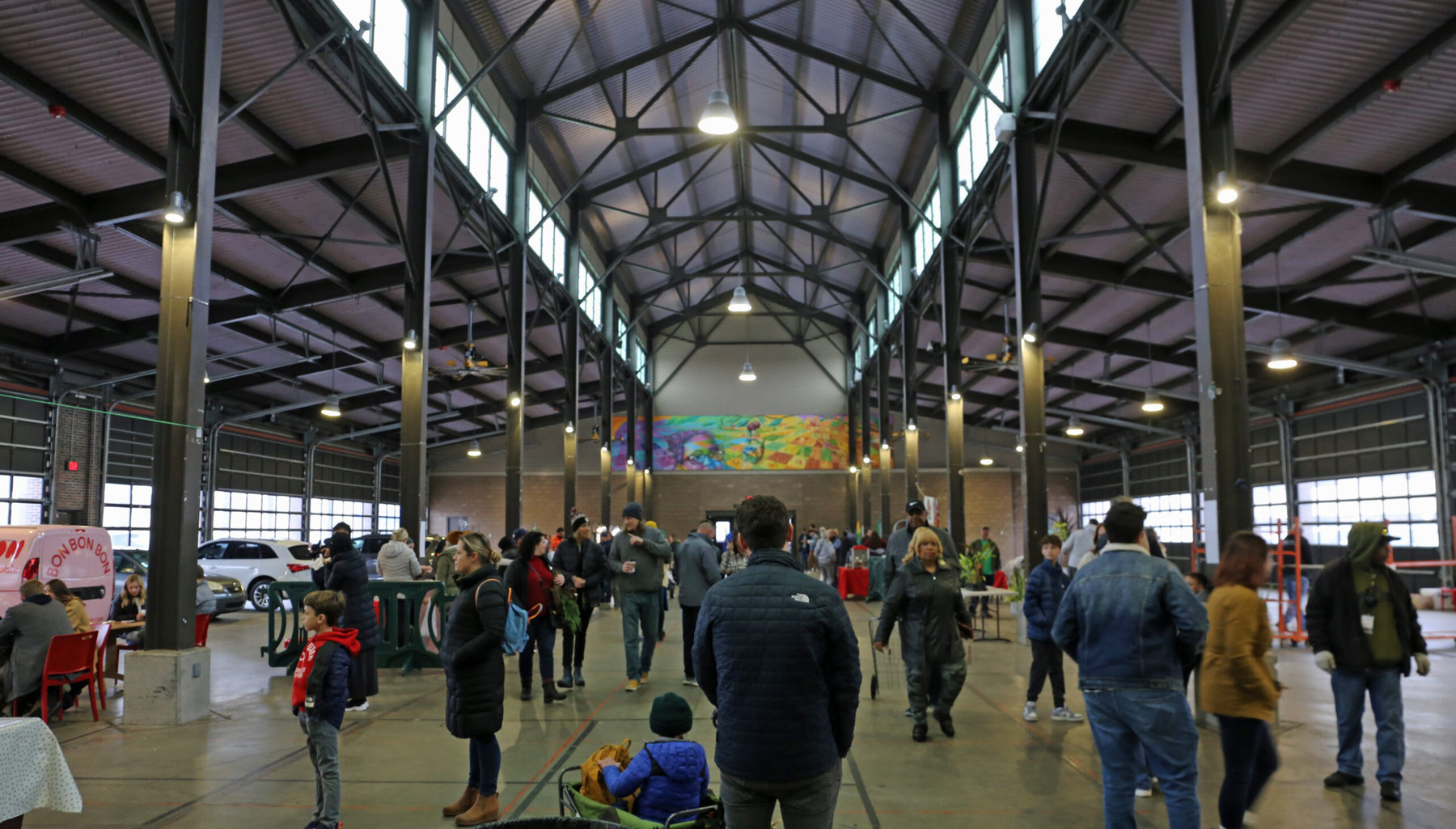1) Green Power in Vermont. Last year our American Futures team reported on several almost-too-good-to-be-true aspects of life in Burlington, Vermont. A print newspaper that was thriving. A commercial airport that was actually pleasant. A brewery whose output was so much in demand that it rationed sales to give everyone a chance. A strong business-and-social-responsibility culture, including in clean tech and info tech. Advances in traditional higher-ed but also in a “career-oriented” approach. An ability to absorb refugees and immigrants. Overall, effective governance and public-private collaboration, from the era of its onetime Socialist mayor Bernie Sanders to the current Democratic mayor Miro Weinberger.
Today, a significant news announcement via this AP story by Wilson Ring. It begins:
Vermont’s largest city has a new success to add to its list of socially conscious achievements: 100 percent of its electricity now comes from renewable sources such as wind, water and biomass….
“It shows that we’re able to do it, and we’re able to do it cost effectively in a way that makes Vermonters really positioned well for the future,” said Christopher Recchia, the commissioner of the Vermont Department of Public Service.
A lot of things are easier to do in a small state like Vermont than in a big, sprawling, quarrelsome country like America as a whole. Still, these things don’t happen on their own, and this is another reason to offer congratulations.
2) Eagles Power in Allentown. As we previewed last week (and as was covered on Marketplace), this past Friday night was a huge watershed for the government, businesses, and people of Allentown, Pa. That was when the high-stakes effort to revive the tattered downtown had its debut event, with a concert by The Eagles at the new PPL Arena.
How did it go? Our friends at the Morning Call have a number of generally upbeat stories. For instance, here’s the way their review of the concert itself was played on the Morning Call’s site.
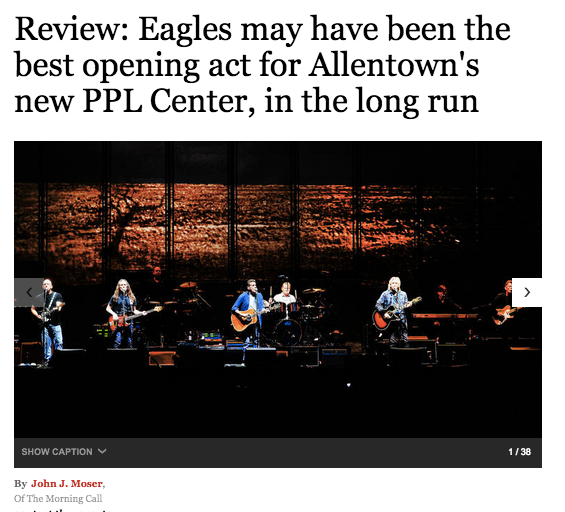
And here was the connection between the band and the town. The Eagles group, John Moser wrote,
which once was such a mighty force in music that it sold 60 million albums in the 1970s alone and became the third-best-selling band of all time, is back on tour after just one studio album in 35 years and no Top 10 songs since 1980.
That puts the band in much the same situation as Allentown — a city that is decades removed from its glory years and is looking to reassert itself.
Both were pretty impressive at the arena’s first event Friday.
For other local coverage, you can start here or here, which includes a charming video of people who had come back into the downtown for the first time in years. This latter story includes a variety of reactions like this:
“I used to come here as a kid, but there was never any reason to come back unless you had jury duty,” [a suburbanite] said. “This is a lot nicer than I’ve heard. They’ve really cleaned it up. I can’t believe this is Allentown.”
Allentown still has a million problems and a very long way to go, as people there are aware and as we will discuss. But to kick off the new season of American Futures coverage, please check out John Tierney’s new post on the unusual tax plan that lies behind the downtown revival, and the people in state and local government behind that plan. He explains how it’s different from urban-incentive programs in place anywhere else, the tradeoffs it involves, and why—in his view, as a one-time political-science professor* and a communitarian in outlook—he thinks it is a positive step.
More to come later this week, as we unveil a new look for this series. For now, good wishes to people working hard for their communities from Burlington to Allentown.
Small-world department: When John Tierney was in graduate school at Harvard, his dissertation supervisor was none other than the late James Q. Wilson, who is famous in and beyond Atlantic precincts as co-author of the hugely influential article “Broken Windows.” John studied urban politics and has been wrestling with these issues for a long time.

